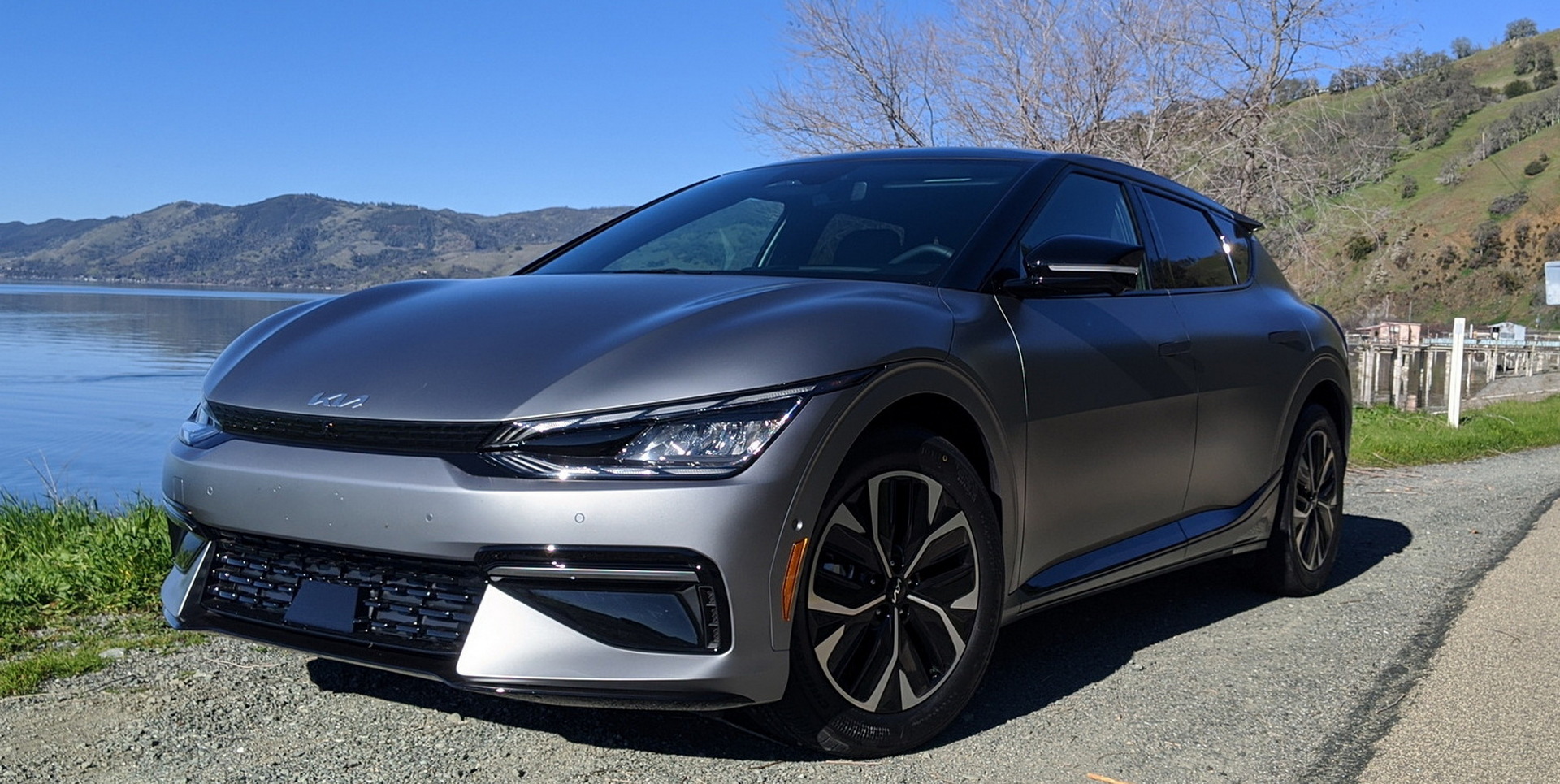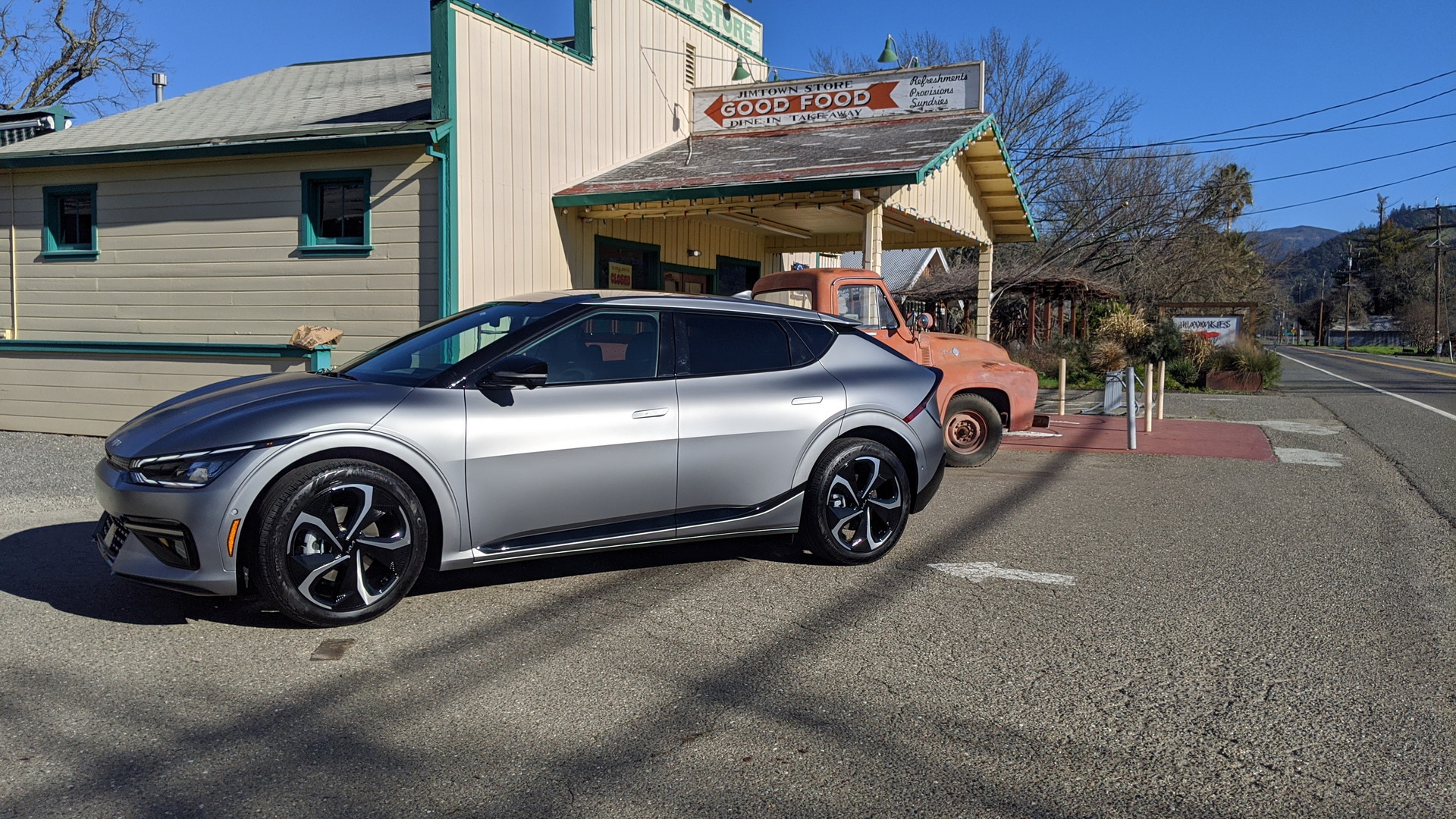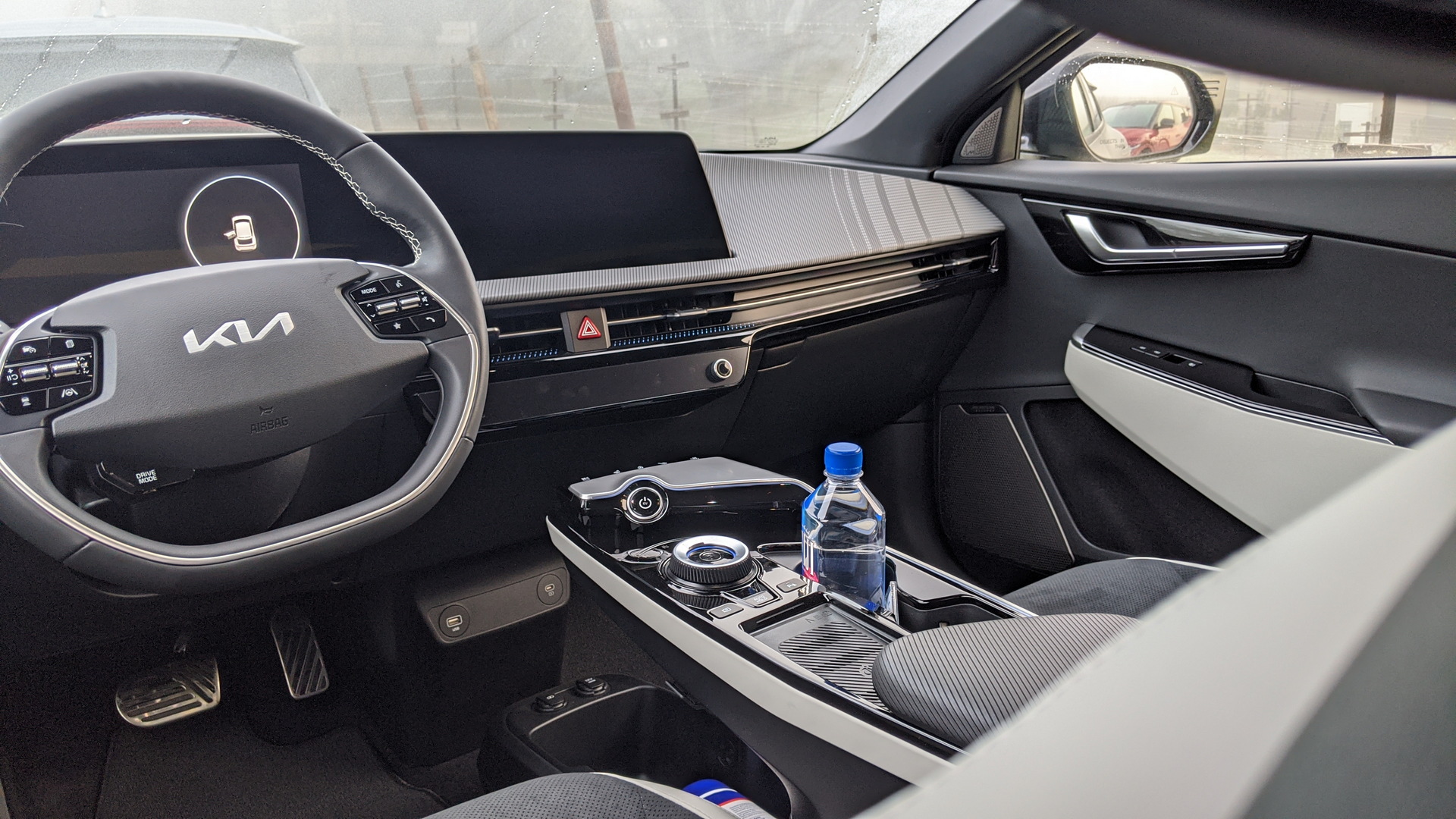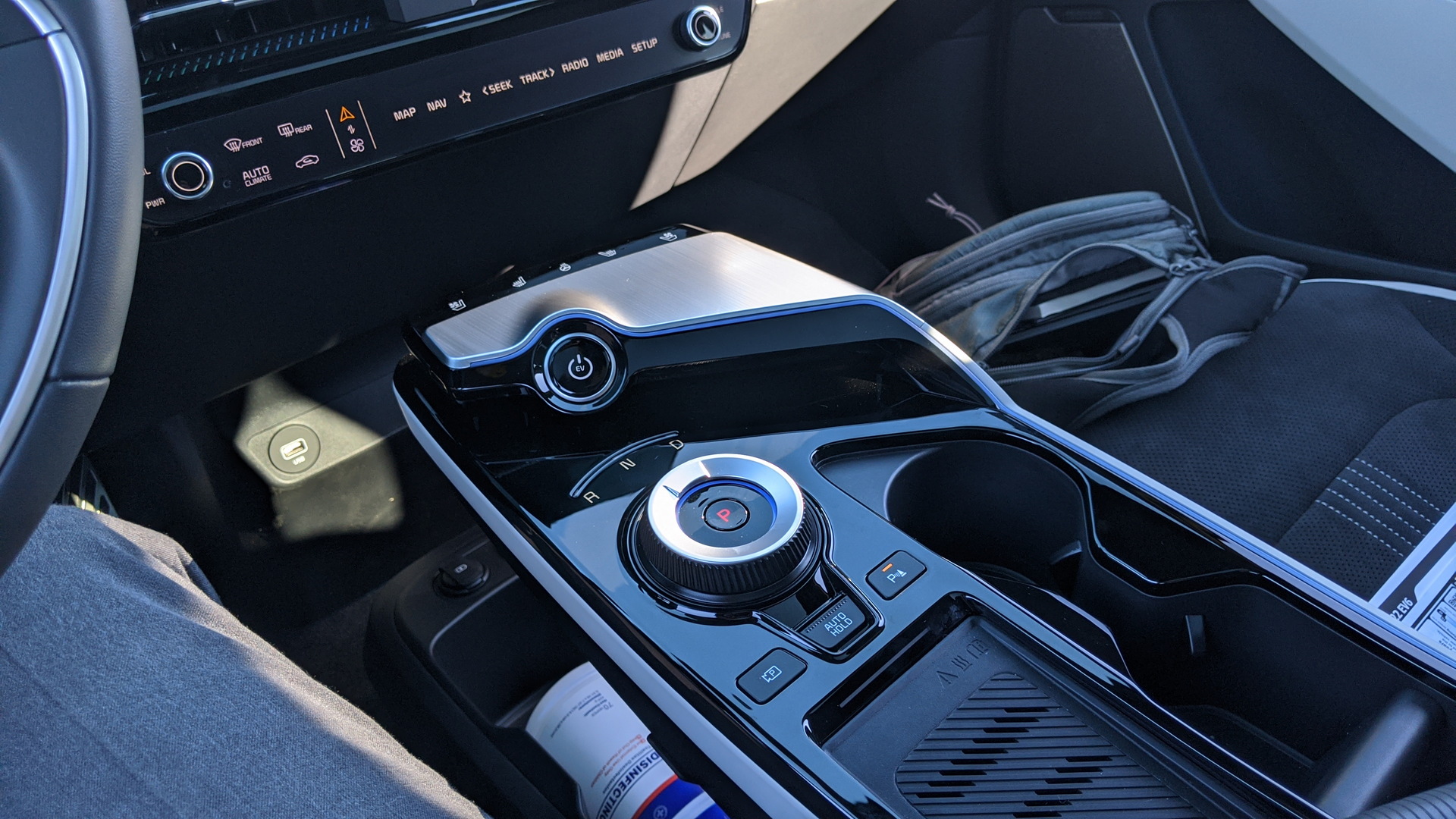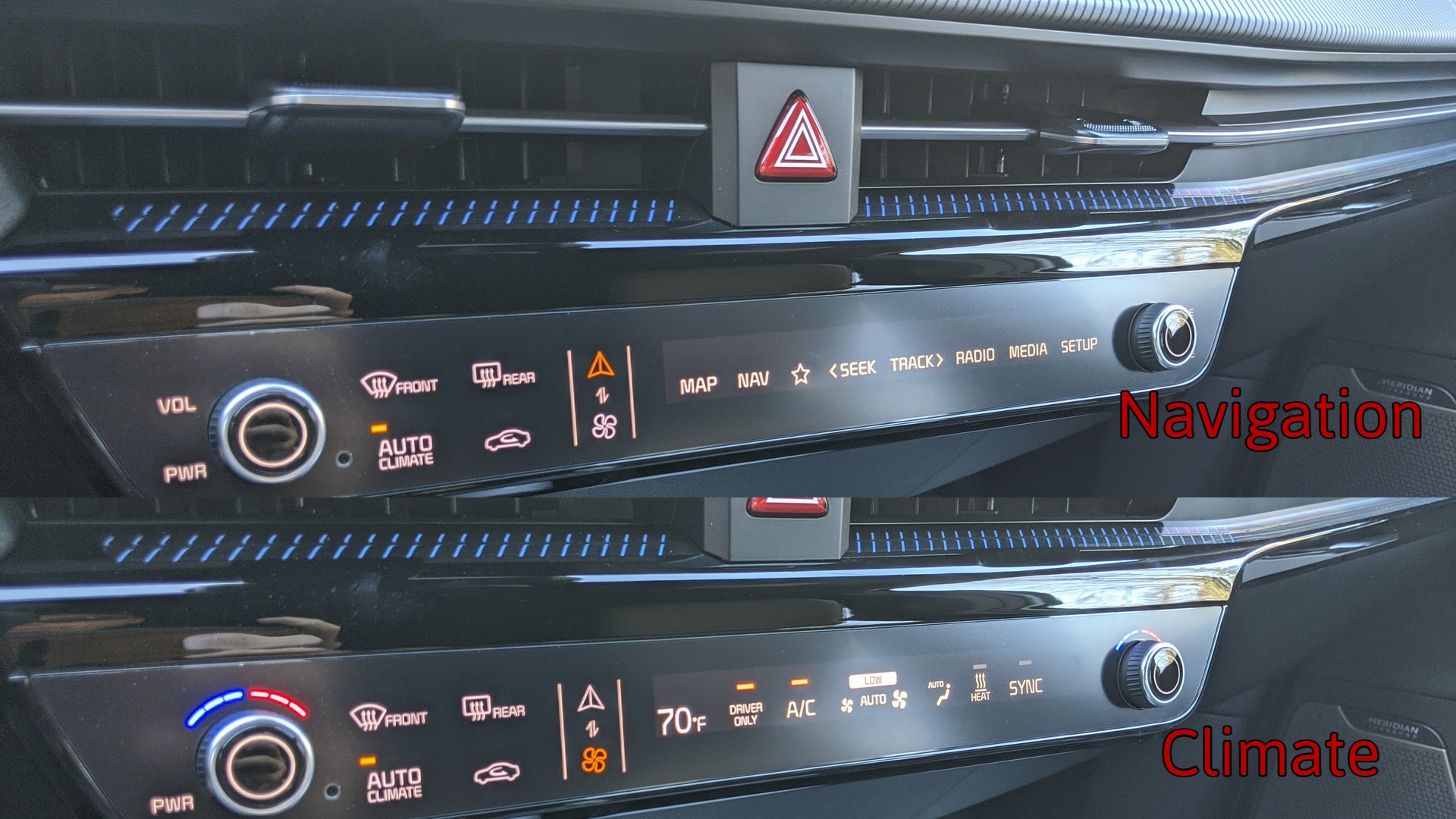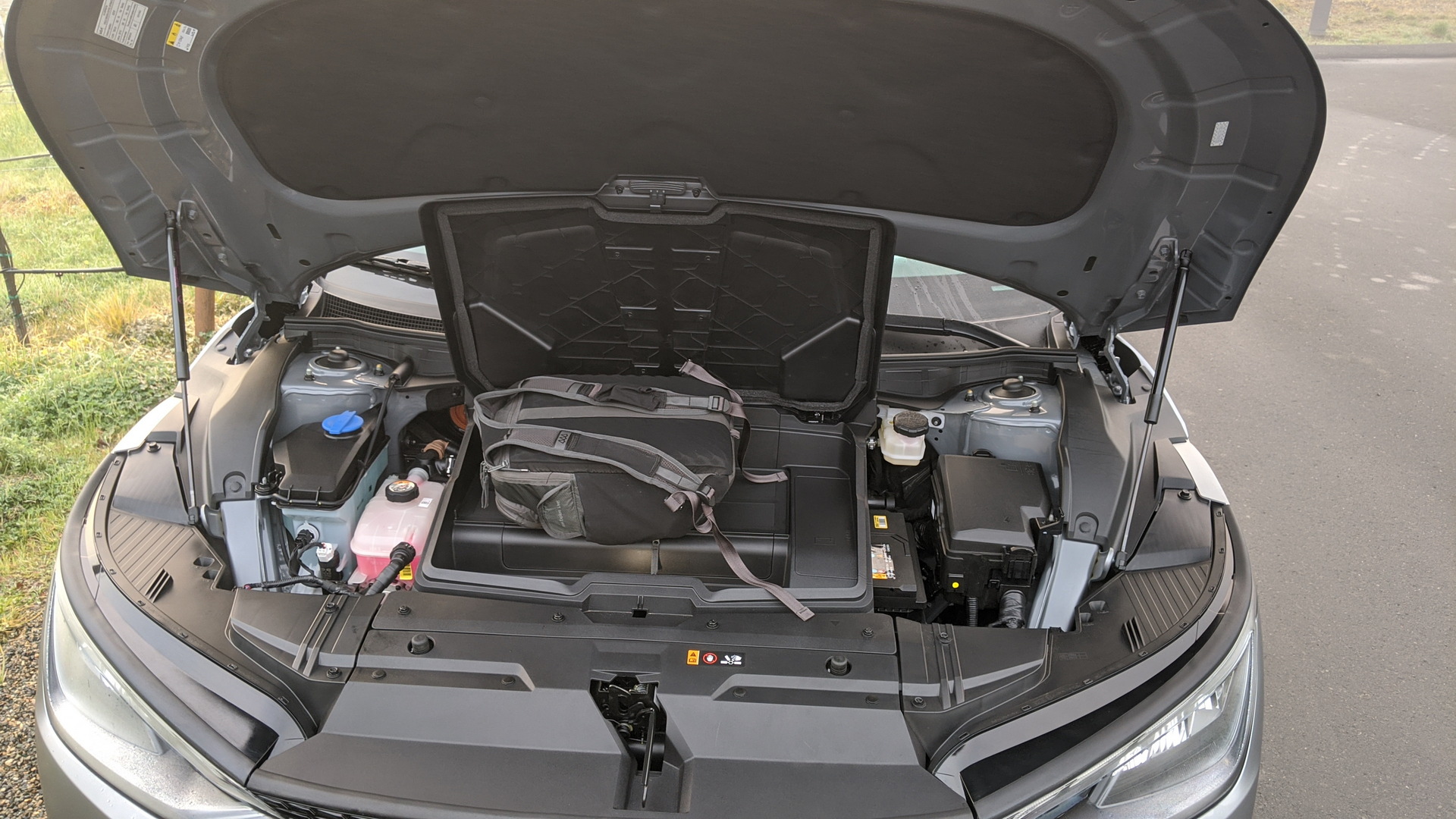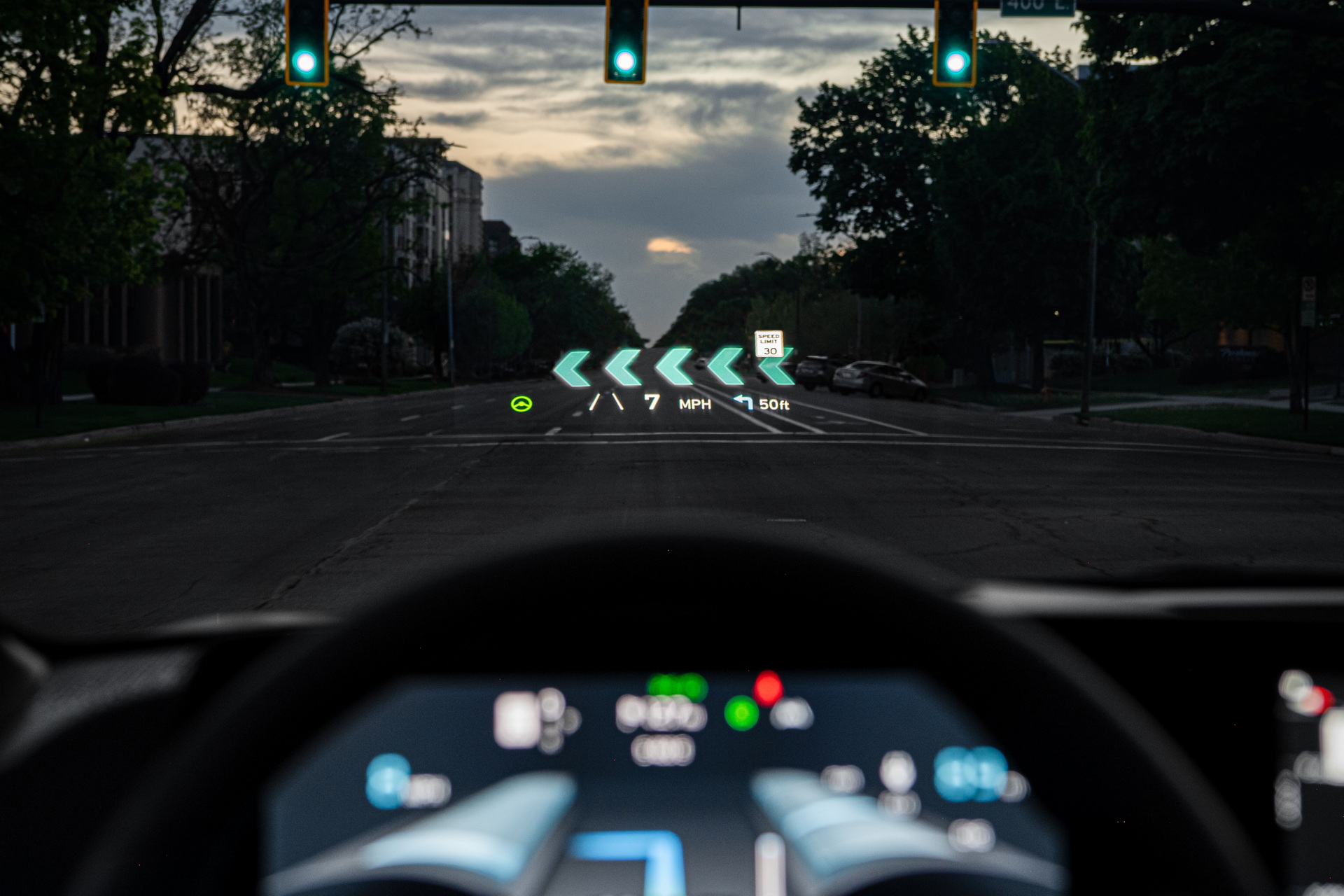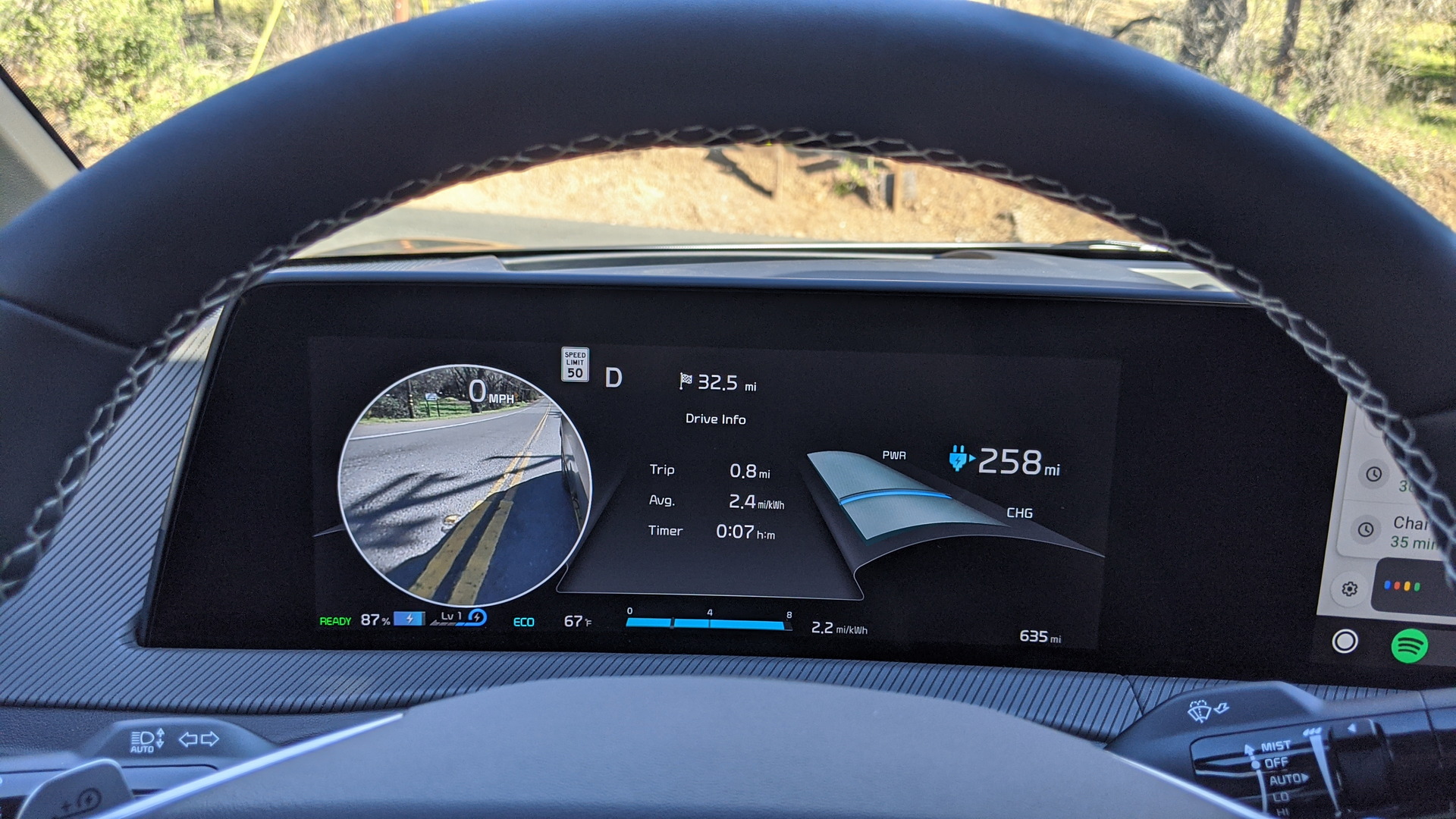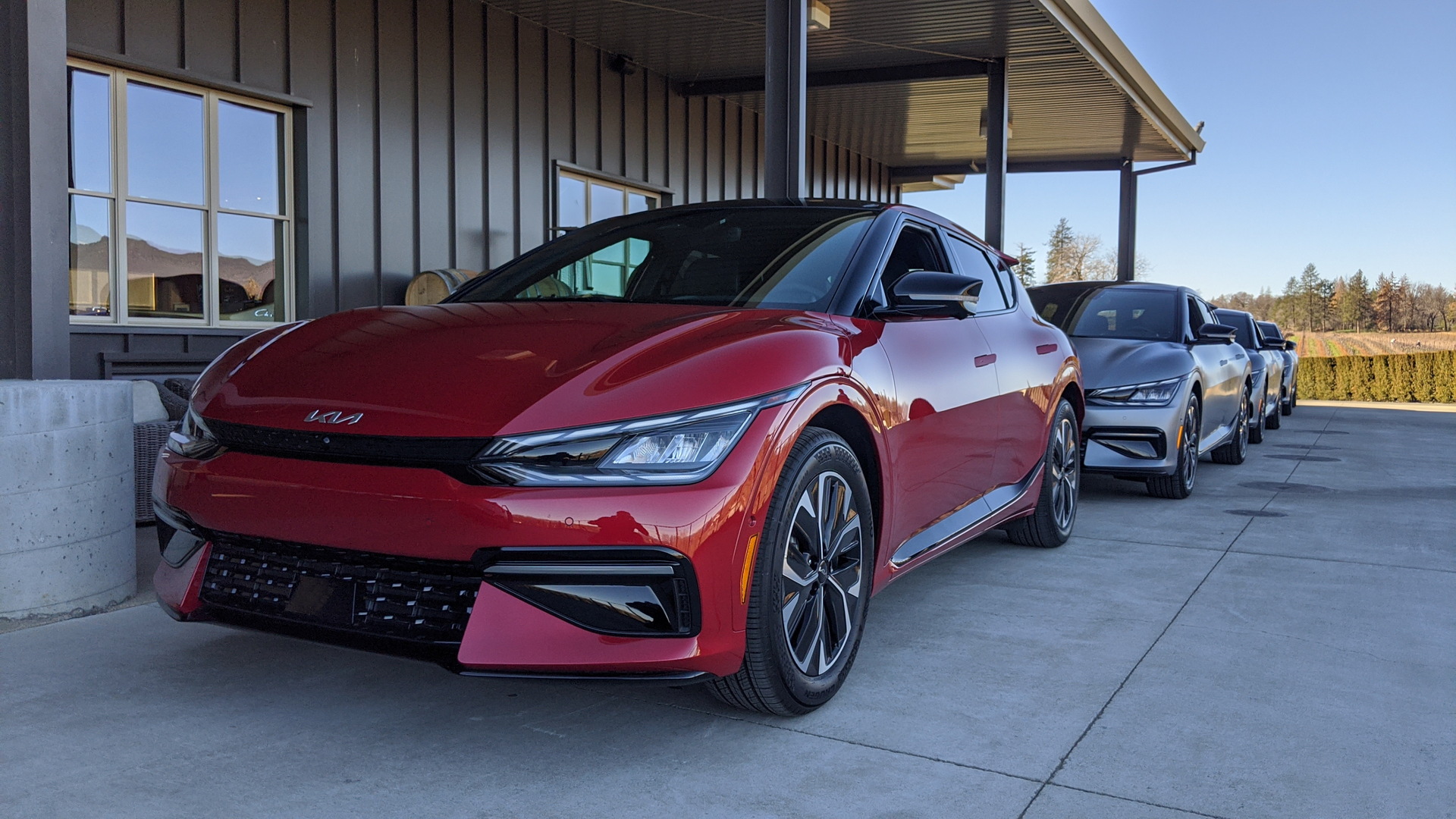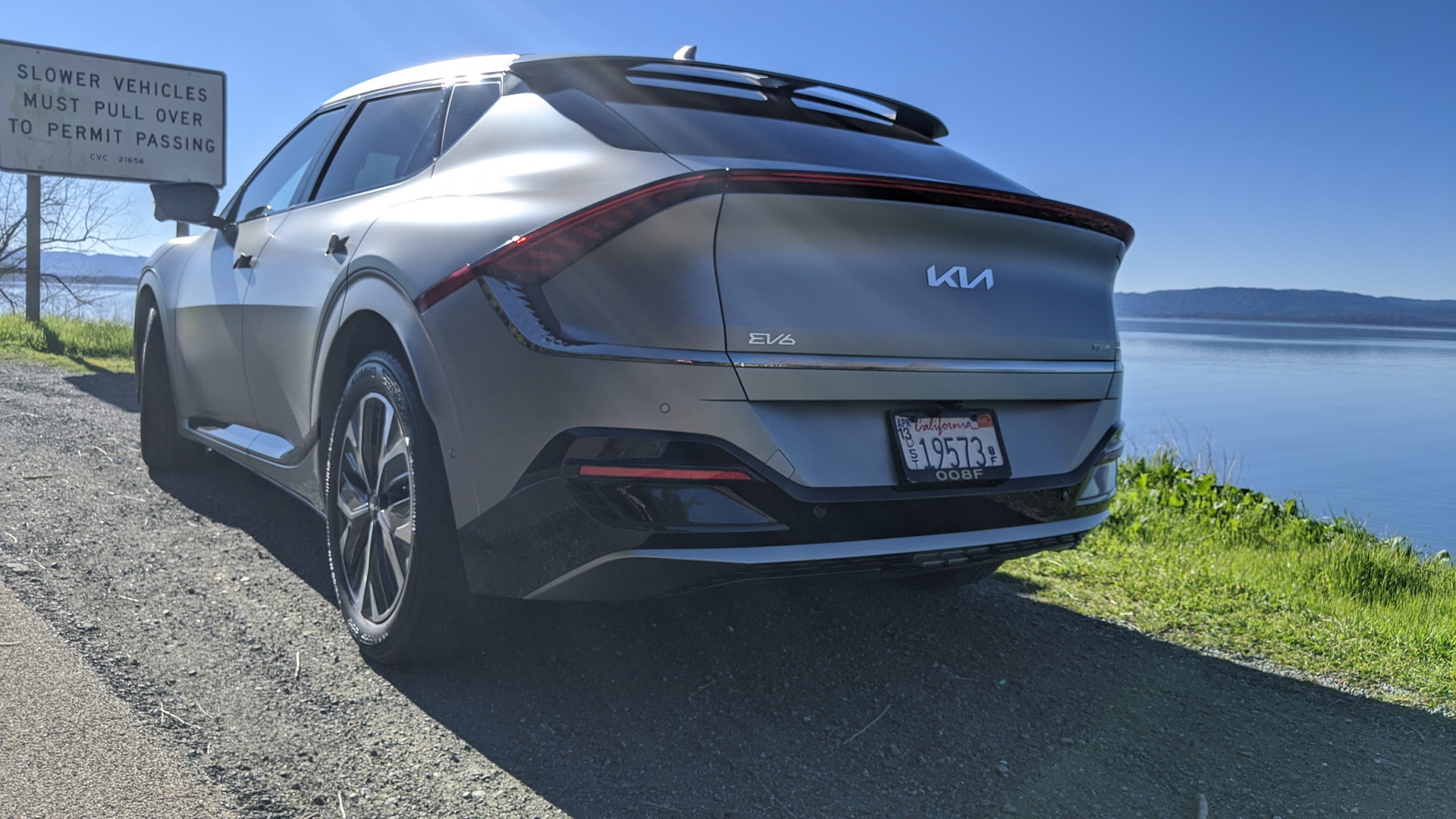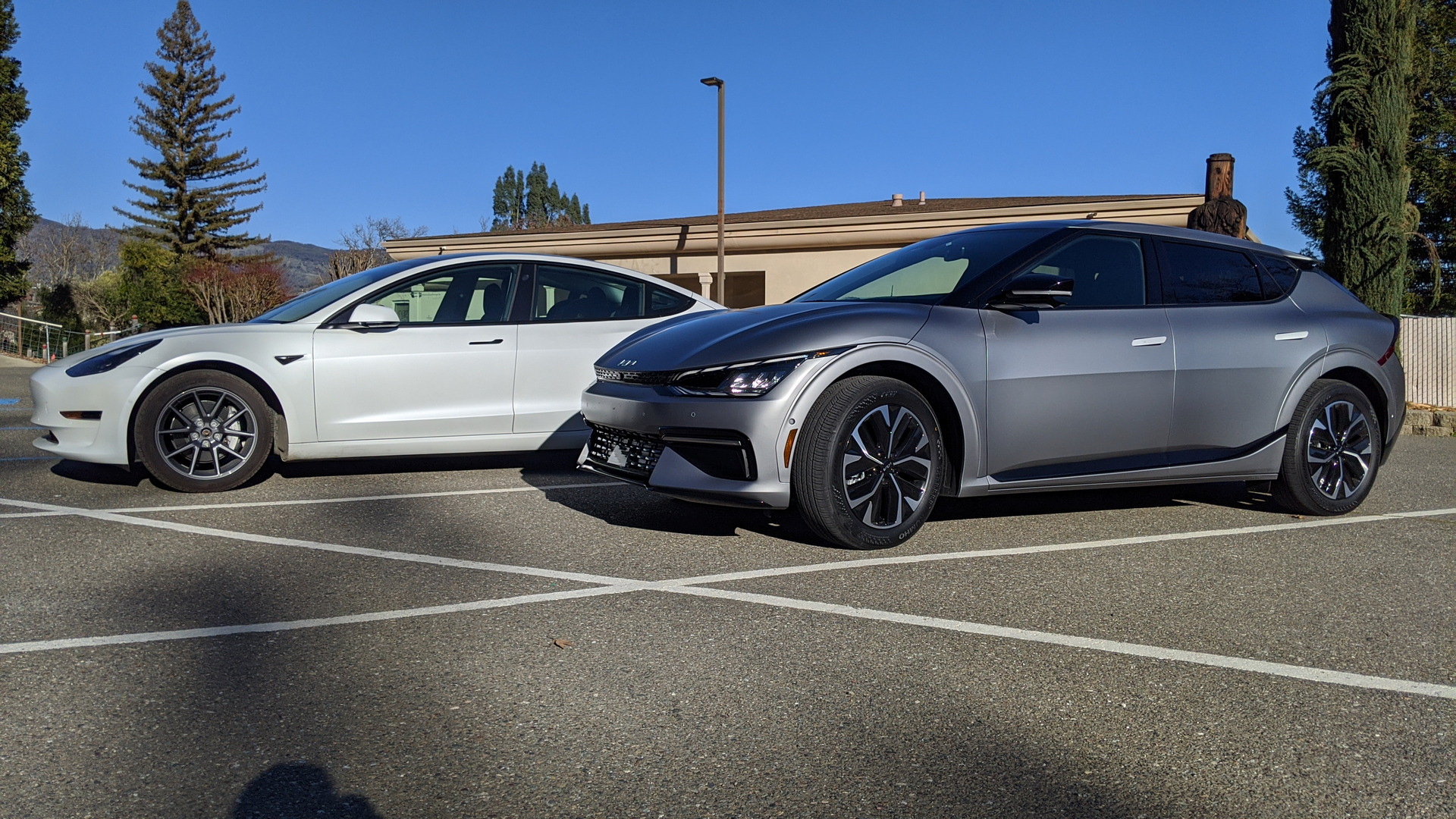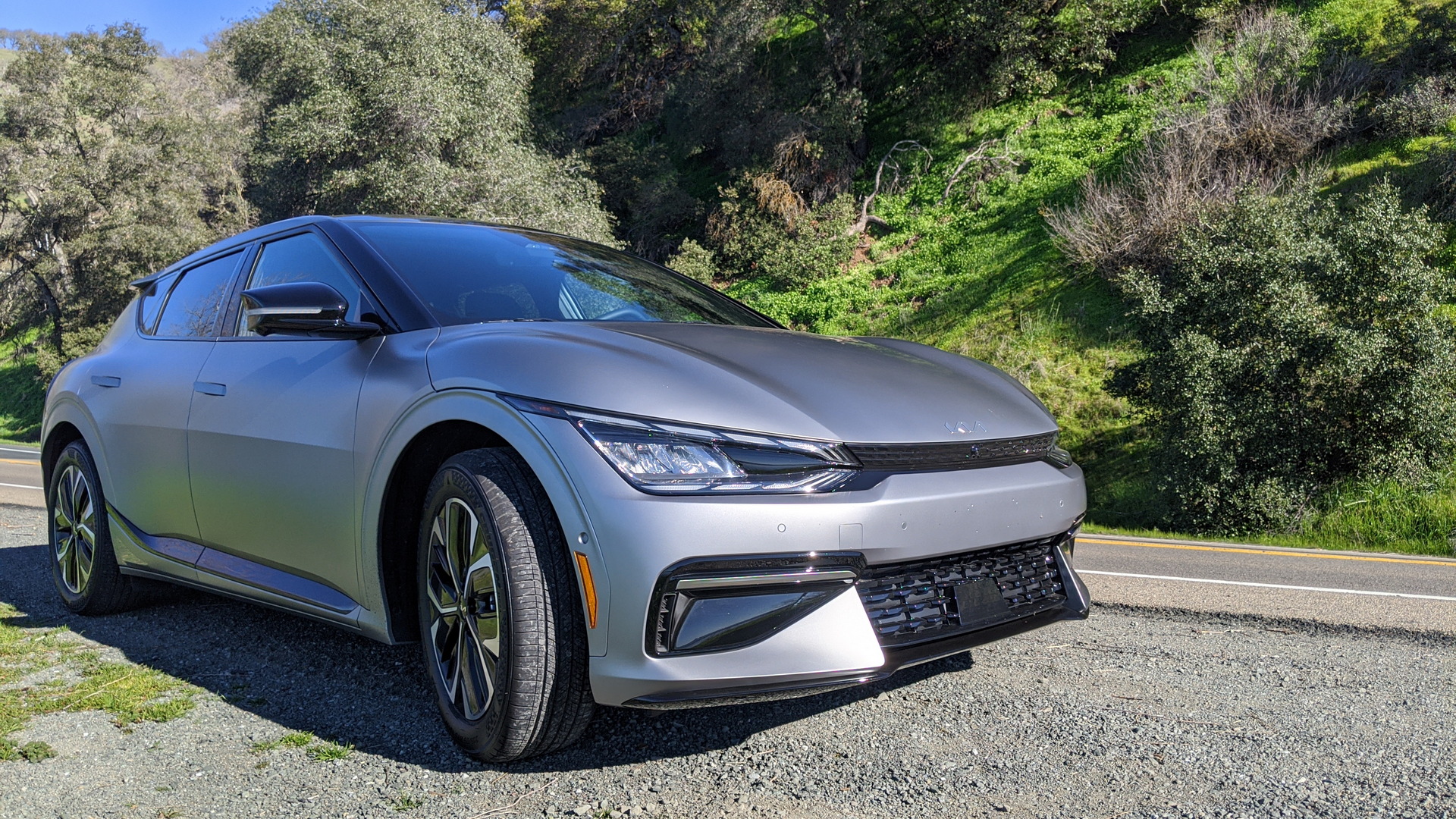The automotive market is reaching a turning point. Electric vehicles are very much the future and Korea’s Kia is making a switch too, one that they’ve been working on for years. It’s actually producing its third-generation electric motor and placing it at the heart of the all-new and all-electric EV6.
We liked this car’s corporate sibling, the Hyundai Ioniq 5, but will this ever-so slightly smaller sportier crossover win us over as well?
To find out we took the 2022 Kia EV6 on some of the most demanding roads that Northern California has to offer, and here’s what we’ve found.
Quick Facts
› Price range: $40,900 to $55,900
› Dimensions: 184.3 in. (4,681mm) L x 74.0 in. (1,880mm) W x 60.8 (1,544mm) H
› Power: 167 to 225-hp (RWD), 320-hp (AWD)
› Range: 232 to 310 miles
› On Sale: February 2022 (USA)
Beauty Is In The Eye Of The Beholder
That statement is made crystal clear when you ask a group of people what they think of the EV6’s design. Some love it, some hate it, and very few find a space in the middle. Kia intentionally pushed the design towards the sportier Stinger vibe than the retro-lounge feel that Hyundai went with on the Ioniq 5. The front looks better to me in person than I expected and I really like the complexity of the headlights which have a 3D design that’s hard to appreciate in photos alone. The lower grille is functional on the EV6 which is kind of rare for electric vehicles in general.
A dark body line at the front bumper turns into a side skirt sort of situation and then ascends into the rear taillights and I’m not totally sold on that. The wide athletic fenders in the back speak to the performance of the EV6 and so does the spoiler at the back of the roof. It’s subtle and sporty in all the right ways as little winglets jut off of each end and vents allow air to pass both above and below the wing itself.
Interior Design and Quality
From the very outset, it feels clear that build quality was high on the priority list. Getting into the EV6 is done by grabbing a little handle that automatically pops out every time the car recognizes that the key is close (we wonder how they’ll work when frozen over). Instead of looking nice outside and feeling terrible on the inside, it’s smooth and satisfying to grab. After getting situated inside, the doors close with a very satisfying, almost bank vault-like thunk.
For me, a taller guy (6’6 for reference), getting comfortable took a little tilt back of the seat, and then I was right as rain. The seats are supportive and highly adjustable and feature both heat and ventilation. The steering wheel tilts and telescopes nicely to accommodate just about any size driver and the general layout feels nice too with a floating center console section that contains the start/stop button, the drive section wheel, and the parking button.
It also houses a pair of cupholders and the heating and cooling elements integrated at the very end of it and in practice it’s easy to get used to but here’s a caveat. There’s a handrest up there and while doing just that, it’s really easy to accidentally hit one of the capacitive heat/cool buttons. I accidentally turned on the heated steering wheel more times than I care to admit. Sure, more time with the car might see anyone adapt but it’s worth noting how easy it is to accidentally trigger these buttons.
Then there are the media and climate controls themselves. Typically I really love adaptive buttons and switches but the function of these buttons in the EV6 feels unnatural. You can either use the climate controls or the media at any one time, never both, and a small button on the display allows you to switch between them at the touch of a button. In terms of how well they respond and function there’s no problem at all. The issue comes when you, for example, take a phone call in the car and turn the volume up to better hear your caller.
If you happen to be in the climate control setting when that call comes in, as I was, then you just turn the interior temperature to 85-degrees only to wonder why you still can’t hear your friend and why it’s so hot in here. You have to pay attention to which setting you’re in when using the buttons. The widespread complaint about touchscreens is that they require us to look away from the road right? Well, this small one in the EV6 requires it just a touch more.
The back seats are nice too and while they lack adjustment, they’re spacious enough that I fit just fine. I had ample headroom too but it can feel a bit dark in the back. One subtle trick Kia uses is to lift the headliner up at the very back of the cabin to add more headroom, something that Ford’s Mustang Mach-E does as well. The knee room was adequate as well though the floor is higher than in a conventional car so you might find, as I did, that the rear bottom cushion isn’t high enough to support your legs.
Cargo space is a mostly positive highlight here too. The only downside is the diminutive front storage area which couldn’t even hold my small day pack. It’s best suited for very small items and has a total volume of just .7 cubic feet (20L). The rear compartment is great though and easily makes up for the lack of a functional frunk. Not only is it capacious, but the rear seats fold completely flat to offer even more storage should you need it.
The EV6 Is A Tech Giant
Let’s talk tech for a few moments because the EV6 is full of it. First, the infotainment system is very nice and provides fast accurate responses to touches. It’s also easy to understand and adjust too so there’s almost no learning curve at all. Buyers looking for a car with Android Auto and Apple CarPlay will get it in every EV6 but it will only be the wired type. Despite that disappointment, the integration works well when in use. We also liked the onboard Wi-Fi hotspot which kept us in contact with civilization no matter how far into the mountains we went.
Every EV6 GT-Line will also get an augmented reality heads-up display and it’s properly impressive. Sure, it does all of the usual stuff like show you your speed, the speed limit on the road you’re driving, and the next turn on your route. What’s really impressive though is the way it brings up actively pointing chevrons as you approach a turn. They adjust to your position and speed in the turn and then disappear when the turn is complete and thus they eliminate the times where you might accidentally turn in a curve too early or too late.
Kia also integrates all of its safety tech into the heads-up display so you can see if you have adaptive cruise, lane-keep assist, or other features activated. It also actively shows you important info like when someone is in your blind spot with a little red radar icon that pulses until the coast is clear. We also think that every car should now come with a form of Kia’s lane-watch blind-spot camera system that shows you a video feed of the lane you want to shift into in the dash when you hit the turn signal. It’s so simple and effective.
The driver aids themselves work well too for the most part. If there’s anything we didn’t like it was how odd the steering wheel sensors worked. Sometimes we’d be warned to place both hands on the wheel while both were already there. It seems the EV6 wants a firmer grip. Other times, though, we’d drive for miles with a single hand on the wheel without any warnings at all. Adaptive cruise control takes a little practice to use effectively but once you’re used to it, it’s a godsend in heavy or slow traffic conditions.
Not As Fun As A Stinger GT But Close Enough
Defining the driving characteristics of the EV6 isn’t a simple task. For reference, this car features a 0.4-inch longer wheelbase than the Tesla Model Y while at the same time being shorter in every other exterior dimension. In fact, it shares its wheelbase with the Telluride 3-row SUV. It’s big but at least in our time behind the wheel, it didn’t feel that way. Don’t get us wrong, it’s not flickable, it’s not uber-nimble, but it’s easy to place in a way that larger SUVs and crossovers could only hope to be.
Sure, a lot of that has to do with the low center of gravity inherent in any skateboard chassis EV, but Kia has done a lot of clever tuning here too. The EV6 will come in three different trim levels. The base is called Light and comes with a single 167 hp (125kw) electric motor and rear-wheel drive. Above it is the Wind which is available with rear-wheel-drive and 225-horsepower (168kw) and 258 lb-ft of torque or two motors, all-wheel-drive and a total of 320-horsepower and 446 lb-ft of torque (605Nm). At the top of the mountain is the GT-Line which uses the same drivetrain layout as the Wind but with more technology inside. We drove both the rear-wheel-drive GT-Line trim and its all-wheel-drive counterpart and our observations below apply to both except where we specifically state otherwise.
Instead of a 50/50 weight balance, Kia has pushed the bias towards the rear just a bit and the result benefits the car two-fold. First, the front wheels have a little less mass pushing them past apexes so the car is cornering sharper than one might expect. Second, the rear is a bit heavier and that tendency to slide is evident. More than once, the EV6 (especially the RWD version) happily greeted us with proper oversteer when we pushed its limits around corners.
We’ve heard that the EV6 Kia sells overseas has a somewhat numb steering feedback so we wonder if they’ve tweaked it for the US because it provided progressive feedback that allowed the tires to accurately communicate what was happening at the road surface.
Pushing it into curves was met with a slight push from the rear that as mentioned could be shoved into oversteer when the mood struck. The car never felt like it was exhibiting any real body roll either, as it dives into corners without a hint of oversteer and feels very balanced. The AWD car feels especially planted through harder cornering.
In fact, it’s very predictable. Despite roads that were skinnier than some large dachshunds, the EV6 would always follow the line we placed it on without complaint. Of course, the heavy battery in the floor helps it feel as planted as it does. The multi-link suspension and the brakes both do a great job of helping the driver maintain control at all times.
One quick note on that. Unlike other brands that have sometimes fitted press cars with slippery rubber only at the back to achieve a sportier ride than the car is actually capable of, the EV6s we drove had the same on all four corners (though the AWD wore Continentals while the RWD used Kumhos). This car was fun to drive and it had nothing to do with tire tricks though we do wish the US-spec EV6 shipped with the same Michelin Pilot Sport 4 tires it gets overseas.
How fast is it, you ask? Well the RWD model isn’t going to knock your socks off with its 225-horsepower (168kw) and 258 lb-ft of torque (349Nm). The 0-60 mph (0-96 km/h) sprint takes 7.2 seconds but once up to speed, the ability to tap into instant torque makes it a great cruiser. At slower speeds around the mountains where we drove it was just as capable, maybe more so, of snapping the back out of a tight turn with lots of aggressive accelerator engagement. Still, the AWD model is the one for enthusiasts, until the 577 hp (424kw) GT comes out next year. With 320 hp (239kw) and 446 lb-ft of torque (605Nm), it sprints off the line like its aptly named “Digital tiger-nose” front-end design language might suggest. Kia says that it’ll rip from 0-60 in just 5.1 seconds but frankly, we think they might be sandbagging a bit. Either way, they’re within tenths of the Tesla Model Y while also costing thousands less.
Where It Stands In The Market
The EV6 will come in three trim levels, Light, Wind, and GT-Line at launch which is any day now. The EV6 Light will offer rear-wheel drive, a 58kWh battery pack, and 232 miles (373km) of range. The Wind and GT-Line both come in rear-wheel and all-wheel-drive variants, both of which use a 77.4 kWh battery pack.
The RWD version has 310 miles (498km) of range while the AWD sees a maximum of 274 miles (440km). Finally, the GT-Line shares the same drivetrain options as the Wind but upgrades the tech and trim. Charging times will depend on both the state of charge and what type of charger you’re using but thanks to its 800-volt architecture, the EV6 can go from 10-80 percent in just 18 minutes when hooked up to a 350kW charger.
Starting at $40,900 (before tax incentives potentially drop that price into the low $30,000s) the EV6 is approachable. For a detailed breakdown of EV6 Trims and pricing both before and after-tax incentives you can click here. In any case, that’s considerably less than the cheapest Tesla Model Y which costs $58,990 and also beats the Mustang Mach-E which starts at $42,895. Each trim level above the base is either equal to or less than its Tesla and Ford rivals too.
Verdict
Much in the same way that we felt like the Ioniq 5 was the new EV to beat, the Kia EV6 matches it on the podium. The EV6 delivers on its promise to provide athletic handling that’s better than the Mustang Mach-E and everyday usability like the Model Y at a much lower price. It’s packed with technology and it’s well built too.
It’s oddly sized for sure, and while that might put off some who want more space, we do think it will appeal to buyers who want more engaging driving dynamics without sacrificing practicality. All in all, the EV6 might just be the most mature choice for the new-age driving enthusiast.
2022 KIA EV6 SPECS
| Model ›› | Light | Wind | GT-Line | 1st Edition |
|---|---|---|---|---|
| Power (RWD) | 167-hp | 225-hp | 225-hp | – |
| Power (AWD) | – | 320-hp | 320-hp | 320-hp |
| Torque (RWD) | 258 lb.-ft. | 258 lb.-ft. | 258 lb.-ft. | – |
| Torque (AWD) | – | 446 lb.-ft. | 446 lb.-ft. | 446 lb.-ft. |
| Weight (RWD) | 4,017 lbs | 4,299 lbs | 4,255 lbs. | – |
| Weight (AWD) | – | 4,539 lbs | 4,539 lbs | 4,539 lbs |
| Max Speed (RWD) | 115 mph | 115 mph | 115 mph | – |
| Max Speed (AWD) | – | 117 mph | 117 mph | 117 mph |
| 0-60mph (RWD) | 8.0 sec | 7.2 sec | 7.2 sec | – |
| 0-60mph (AWD) | – | 5.1 sec | 5.1 sec | 5.1 sec |
| Range (RWD) | 232 miles | 310 miles | 310 miles | – |
| Range (AWD) | – | 274 miles | 274 miles | 274 miles |
